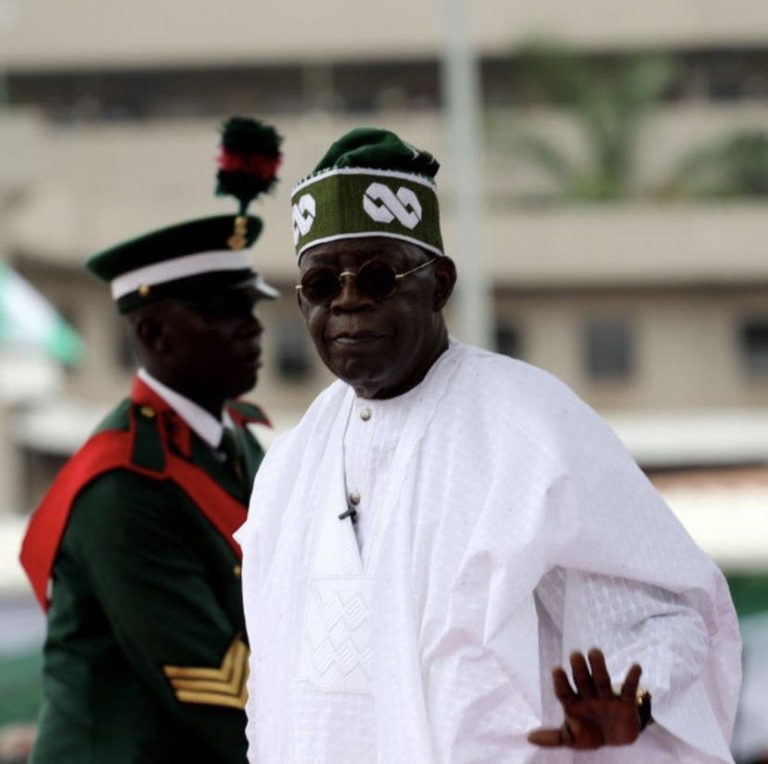By Michael Chibuzo
President Bola Ahmed Tinubu is currently in the United Arab Emirates alongside other world leaders for the 28th Conference of the Parties to the United Nations Framework Convention on Climate Change (UNFCCC) otherwise known as COP28.
Each year, the COP brings together world leaders, scientists and activists to discuss and make progress on global climate action. The goals of these annual gatherings include reducing greenhouse gas emissions, increasing climate adaptation and resilience, and mobilizing finance for climate action. Reducing greenhouse emissions entails reducing use of fossil fuel incrementally. But Nigeria is rich in fossil fuel and depends heavily on proceeds from sale of crude oil to finance its growth.
The above scenario seems like a paradox because it brings us to the question of what exactly is Nigeria seeking to achieve in these climate summits whose ultimate goal is to save the planet by cutting back on use of fossil fuel as source of energy. The answers are quite straightforward. Nigeria wants to ensure there is CLIMATE CHANGE EQUITY!
This is basically the message Asiwaju Bola Ahmed Tinubu, then presidential candidate of the APC sought to convey in October 2022 at the Arewa House when, in response to a question on Climate Change, perfectly captured the dilemma faced by many poor resource-rich developing nations like Nigeria. Candidate Tinubu at that time famously said, “climate change is a question of how do you prevent a church rat from eating a poisoned holy communion”.
Even though President Tinubu’s analogy was controversy, largely due to many noisy ignorant commentators, he couldn’t have captured the situation more succinctly. The church rat signifies poor resource-rich nations like Nigeria while the poisoned holy communion signifies crude oil, which despite being a source of needed revenue for these nations, are the main contributors to climate change hence its description as a “blessed curse”.
The climate change discussions/negotiations have always ran into troubled waters whenever it comes to actual commitments by countries to cut back on the exploitation of fossil fuels. The climate change equity being championed by developing countries who are also rich in fossil fuel such as Nigeria, is simply the idea that all countries should contribute to tackling climate change in proportion to their ability to do so.
This means that developed countries, which have emitted the majority of greenhouse gases in the past and have the greatest capacity to address climate change, should take on a greater share of the burden of reducing emissions and providing financial support to developing countries. Climate change equity as canvassed by poor countries also requires developed countries to provide financial support to help poorer nations adapt to the impacts of climate change and transition to low-carbon economies.
Developing countries such as Nigeria argue that they have contributed far less to the problem of climate change and should not be expected to shoulder the burden of reducing emissions without financial assistance. So, when you look at these backdrops you can begin to understand how important these climate change summits are to a country like Nigeria. Our voice needs to be heard at the negotiating table.
Luckily, Nigeria is led at this point in time by a President Bola Ahmed Tinubu who has consistently shown great understanding of the fluid nature of the Climate Change discussion as it concerns Nigeria’s strategic interest. President Tinubu is not against reducing greenhouse emissions and faster transition to low carbon energy sources. In fact, during the campaigns and after assumption of office, President Tinubu has always emphasised on the need for Nigeria to exploit its gas resources, which is a cleaner source of energy.
President Tinubu pre-election called on the West to spare some credit to finance pipelines from Nigeria to Europe that can transport gas to them. Post-election, President Bola Tinubu has been relentless in his pursuit of concrete investment in gas production as well as building of pipeline infrastructure for gas export to Europe. In the past four months, he has met the German Chancellor four times at various fora and discussions between the two leaders usually involve gas, gas and gas.
COP28 therefore provides a valuable platform for President Bola Ahmed Tinubu to reiterate Nigeria’s self-imposed net zero carbon emission targets as well as to let the world know about efforts Nigeria is making to transition to cleaner energy sources such as the removal of fuel subsidy, which is indirectly unlocking opportunities for increased CNG utilisation and investments. COP28 most importantly is providing Nigeria and President Bola Tinubu a platform to shop for investments that will aid these transitions.
Already President Bola Tinubu on the sidelines of the ongoing summit, has signed a bilateral agreement with the German government to accelerate the implementation of the 2019 Siemens deal and the realisation of the Presidential Power Initiative (PPI) aimed at ramping up the wheeling capacity of the Transmission Company of Nigeria to 12,000mw in the next 18 months. An improved power generation through the use of cleaner gas-fired power plants will drastically reduce Nigeria’s greenhouse gas emissions emanating from use of petrol/diesel generators as alternative power sources.
Nigeria, as a proverbial church rat must therefore milk the ongoing COP28 to the fullest as we strive to balance economic growth and the survival of our dear planet.

